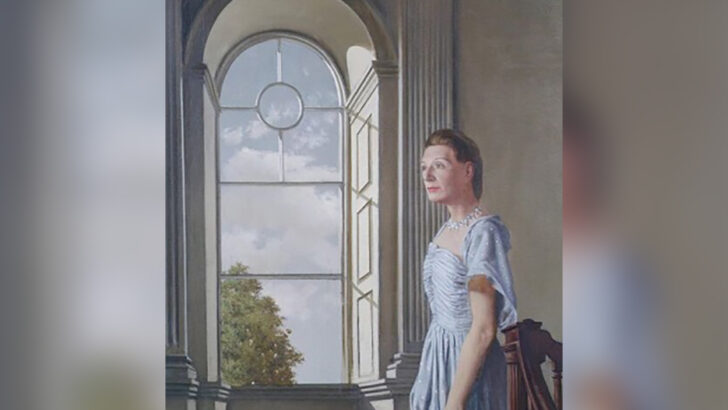Southern Irish Protestant – Histories, Lives & Literatures,
by Ian d’Alton
(Eastwood / Wordwell, €25.00 / £22.95)
Robert Marshall
Ian d’Alton was born in Dublin, moving to Cork at the outset of his teenage years. He graduated from University College Cork. There he read history under Oliver MacDonagh before going up to Peterhouse Cambridge where he wrote a Ph.D. (1972-5). Subsequently, he joined the Irish Civil Service and retired in 2012 as Chief Executive Officer of the Housing Finance Agency.
His interest from undergraduate days was the identity and background of Southern Irish Protestants. They are the focus of this collection from his writings over 40 years: a foil for his own middle class urban professional Protestant identity, formed in the mid-twentieth century.
D’Alton presents twenty-one essays bookended by Felix M Larkin‘s introduction, and Alan Ford’s afterword. Ford sums up the challenge presented to d’Alton: an Irish historian caught in the no man’s land between literature and science; subjectivity and objectivity; Catholic and Protestant, and revisionism and anti-revisionism.
Path
Ever an independent scholar, d’Alton ploughs his own path. He carefully divides his book into six parts each examining a theme. Protestant Culture and Protestant Lives precedes Explaining the Southern Irish Protestant. This is followed by an examination of Literary Luminaries. War and Rebellion follows in which the motives of the Irish gentry’s involvement in the Great War stand against the Protestant experience of 1916 in Dublin and Cork.
Those essays precede part V giving consideration to Partition and Regime Change before the final part considers Religious Disputations between Disestablishment and Irish Anglican reaction to the promulgation of the Doctrine of the Assumption.
D’Alton highlights that the collection attempts to illuminate his fundamental journey to understand identity through the discipline of history. Tellingly, this is stated in his introductory essay Protestant and Irish echoing the title of the successful book he co-edited with Dr Ida Milne (2019).
Modern Southern Irish Protestants are not landlords with an heir, and younger sons for the army, the law and the church”
d’Alton explains how the title “Southern Irish Protestants” reflects what he and most of his tribe are not. They are not Northern Protestants. They neither are Irish and neither British (as many of their Northern co-religionists would claim to be) nor English. Finally, he is not a Roman Catholic. In the book it becomes clear that his Protestantism is of the Church of Ireland.
To this list are added other ‘not’s” indicating what modern Southern Irish Protestants are not. Memorials in many of their churches record the social status of former landlord families within the pre 1922 landed, governing and military elites. Modern Southern Irish Protestants are not landlords with an heir, and younger sons for the army, the law and the church. Class, which within Protestantism climbed from city and agricultural labourers through the gentry to the aristocracy and the Crown, no longer applies in the republic’s meritocracy.
Having stated the ‘not’s one of D’Alton’s methods is to use literature as a source. He returns frequently to Elizabeth Bowen, Iris Murdoch and other Southern Irish Protestant writers. They observe in their writings the forces which shaped lives during the period in which they wrote. They note particularly the insularity of Southern Protestant existence, even its exceptionalism.
Distinguished
These writings have to be distinguished from the work of a novelist such as Hilary Mantel. Whereas Mantel presents history to the public through novels set in carefully recorded historical contexts, Bowen, Murdoch and Trevor write from their contemporary observations.
These writings are historical sources for d’Alton. Of Dalton’s icons, only Elizabeth Bowen receives detailed treatment from Declan Kiberd in Inventing Ireland (1995). Their concerns differ: Kilberd’s was to present authors who helped shape modern Ireland: d’Alton to mine perceptively his icons’ literature of record and so highlight change.
The destination in the author’s words is to ‘what a sense of place and attachment means to this little people hood on a small island’”
D’Alton’s volume is the “offcuts of the ethnic and cultural rather than the purely devotional” as it “paints different landscapes of identity and belonging.” Hence, readers should not expect it to describe or assess the present temporal or spiritual strength of Southern Irish Protestant communities, still less the welcome arrival of the new Irish. Nor should readers expect pointers to the future of those communities.
As this review outlines, the volume is about how those minority communities collectively shed baggage as their world changed, and travelled to establish confidently their place in modern Ireland. The destination in the author’s words is to ‘what a sense of place and attachment means to this little people hood on a small island’. The author offers this sense to his northern co-religionists and Unionists friends who, in the fullness of time, may find it useful.
In launching Southern Irish Protestants, Brian Dobson drew on a statement by Emmanuel Macron that Huguenot blood ran in the veins of France. Dobson demonstrated from this book that Protestant blood runs through the veins of Ireland.
This volume, d’Alton’s personal quest, and the example of his career demonstrate that truth. Elegantly written, with pithy and perceptive, often wry, turns of phrase, these essays will well repay the reader’s thought and reflection.


 Elizabeth Bowen, by Patrick Hennessey, Crawford Art Gallry Cork
Elizabeth Bowen, by Patrick Hennessey, Crawford Art Gallry Cork 